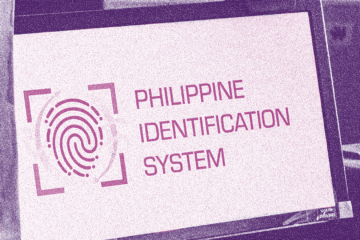Privacy Act IRR Released – NPC to Educate Public about Privacy
[PRESS RELEASE]
The Implementing Rules and Regulations (IRR) of Republic Act 10173 or the Data Privacy Act (DPA) of 2012 was officially submitted to the Presidential Communications Office (PCO) for publication on the Official Gazette by the National Privacy Commission (NPC) after several months of public consultations nationwide with various stakeholders. The IRR will officially take effect fifteen (15) days after its publication.

Commissioners, Mon Liboro, Ivy Patdu and Dondi Mapa of the NPC (form R to L) listed to inputs from health information and research stakeholders at a public consultation on R.A. 10173’s IRR (photo courtesy of Ramon Duremdes Jr. )
Civil Society organization, Foundation for Media Alternatives (FMA) was instrumental in organizing Public Consultations for the Implementing Rules, According to FMA Director Alan Alegre; “The FMA is pleased with the spirit of inclusive participation of stakeholders in the development of the DPA’s IRR, Kudos to all stakeholders who participated in the public consultations, submitted comments online and offline, and produced position papers.”
Personal Information Controllers and other stakeholders participated in five public consultations and several meetings with the NPC. These stakeholders included representatives from banks, retail, education, research, health Informatics, civil society, business process management, the migrant sector and Government organizations. Among the organizations that helped organize public consultations were the Philippine Computer Society, U.P Office of the Vice Chancellor for Research and Development (OVCRD), Department of Health, Philippine Council for Health Research and Development, Ateneo de Davao University, UP-PGH, National Telehealth Center and FMA.
The NPC will focus on conducting public information campaigns aimed at educating the public and organizations on the importance of data privacy in its first year of operations. According to Privacy Chairman Raymund Liboro, “With the prevalent use of personal data in access devices, social media, smartphone apps as well as the delivery of basic services, it is extremely important that the public and organizations be made aware of the need to
responsibly handle personal information,” Commissioner Liboro explains.
Commissioner Liboro emphasized that the DPA and its IRR were developed with the rights of the individual should be given priority. “The rules were made with the citizen’s protection and the country’s progress in mind. Personal data are your personal assets that should be guarded. Collectively, they become a national asset too.” Chairman Liboro added.
The Data Privacy Act applies in general to any person or organization, whether from the government or private sector, that is involved in the collection, processing and any further use of personal data. Personal data is any information that may identify a person, such as names, identification numbers, and personal circumstances. It may involve sensitive information such as contents of a medical record which a person normally does not intend to disclose to the public.
According to Chairman Liboro; “Everyone must be aware on how to secure them from threats. The Data Privacy Act was enacted to build trust on the country’s ICT systems. To make sure every Filipino benefits from ICT and not to fall victims to data use negligence and internet abuse.”
The Privacy Commission is hopeful that they will get full cooperation from industry, government, civil society groups and other stakeholders on the conduct of its public information campaign and other activities. NPC Deputy Commissioner Ivy Patdu said, “To truly embrace a culture of privacy requires multi-sectoral coordination. The Commission has a big job ahead and the support and cooperation of various industries and Government will go a long way in protecting personal data.”
“Privacy is a fundamental human right. Promoting free flow of information should not be seen as incompatible with upholding the right to information privacy. We just need to realize that the benefits gained from use of personal data comes with a duty of respecting rights of data subjects” Commissioner Patdu said.
About the National Privacy Commission – The National Privacy Commission is an independent body mandated to administer and implement the Data Privacy Act of 2012, and to monitor and ensure compliance of the country with international standards set for data protection.
###
30 August 2016
National Privacy Commission
Contact Person: Roy Espiritu – roy.espiritu@privacy.gov.ph
Contact No.: +639178718547



0 Comments